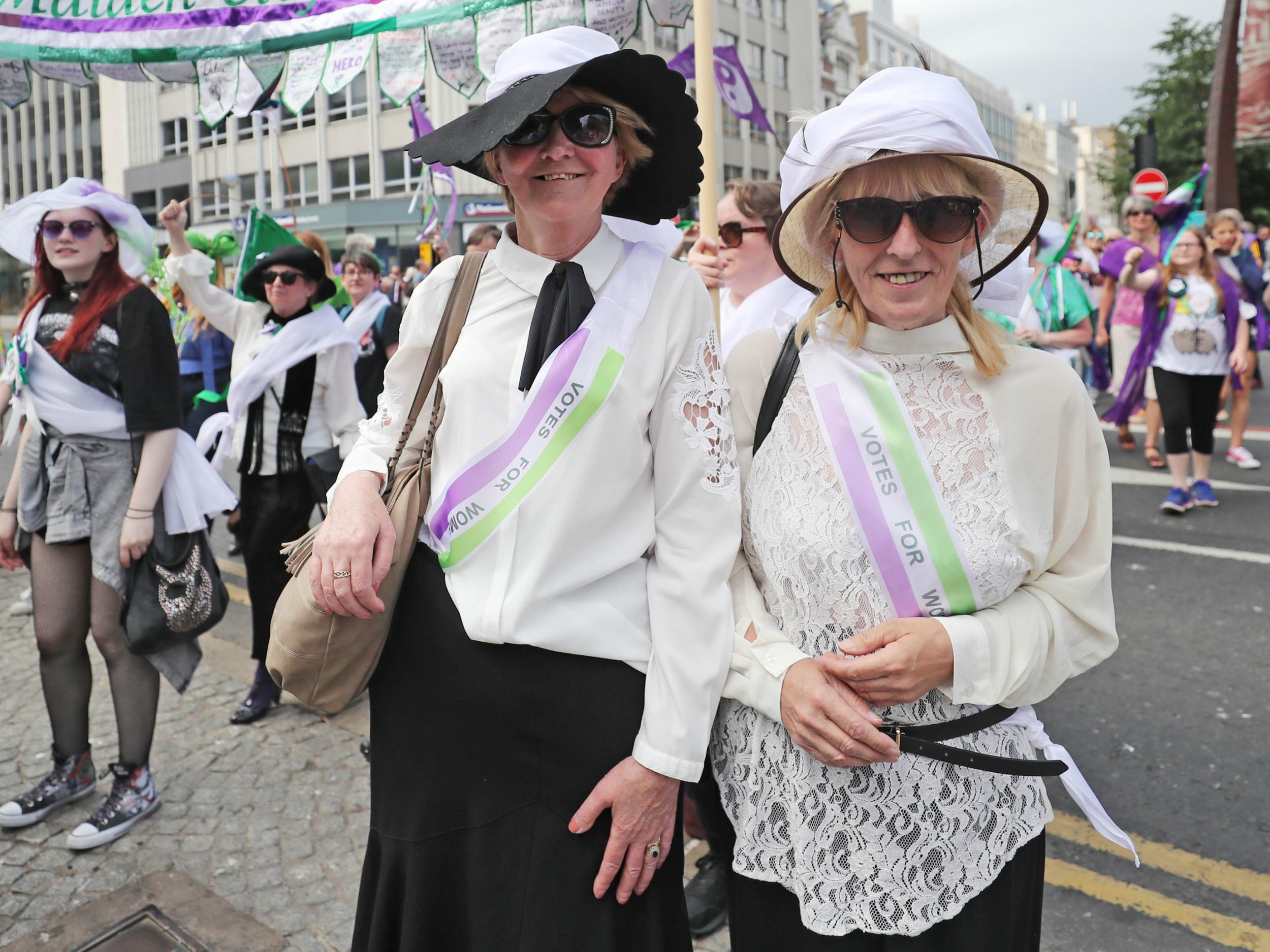Thousands march through major UK cities to celebrate centenary of women getting right to vote
Crowds form 'flowing river of colour' through streets of London, Cardiff, Belfast and Edinburgh

Thousands of people wearing the suffragette colours of green, white and purple filled the streets of major UK cities, to celebrate the 100-year anniversary of the first British women getting the vote.
Women’s groups from all over the country attended, many joined by their partners and children.
Organisers handed out colourful scarves in London, Cardiff, Belfast and Edinburgh and choreographed demonstrators to walk in bands, with the intention of making crowds appear like "a flowing river of colour”.
The event was coordinated by 14-18 Now – an art programme connecting people with the First World War – and Artichoke, which stages large-scale art events in public places.
They said their intention was to form “a living portrait of women in the 21st century and a visual expression of equality, strength and cultural representation”.
They added that the event "celebrates the fight for suffrage, and expresses what it means to be a woman today”.
In London, thousands of women and girls followed a route from Hyde Park, through Trafalgar Square to the Houses of Parliament.
Demonstrator Yazmin Azmadzadeh, a 26-year-old mental health researcher, told The Independent: “We’ve had so much fun today with all the strong women and their encouraging slogans. I feel filled with power and enthusiasm.”
She was holding a large, multicoloured banner with the words, “Freedom for all women”, alongside her friend, Phoebe Boulton Jaggi, who said: “Banner-making was hard – we have even more respect for the suffragettes and suffragists now.”
A group of soldiers in uniform also joined the March.
Lt Col Debs Taylor, from the Royal Military Academy Sandhurst, said: “We came down today because obviously we wouldn’t be where we are today if there hadn’t been a change in attitudes.”
A group of New Zealanders based in London sang Maori songs and wore traditional dress to the march.
They pointed out that New Zealand women were granted the vote 25 years before their British counterparts, so they were celebrating 125 years of women’s emancipation.
In 1918, after decades of campaigning by women’s groups and in the aftermath of the First World War, the UK parliament passed the Representation of the People Act.
However, contrary to popular belief, it only granted the vote to a restricted group of women: householders over 30, wives of householders, graduates or those who lived in property with rents of more than £5 a year.
The vote was extended to all women over the age of 21 in 1928, which gave them equal terms with men.
Press Association contributed to this report
Join our commenting forum
Join thought-provoking conversations, follow other Independent readers and see their replies
Comments
Bookmark popover
Removed from bookmarks